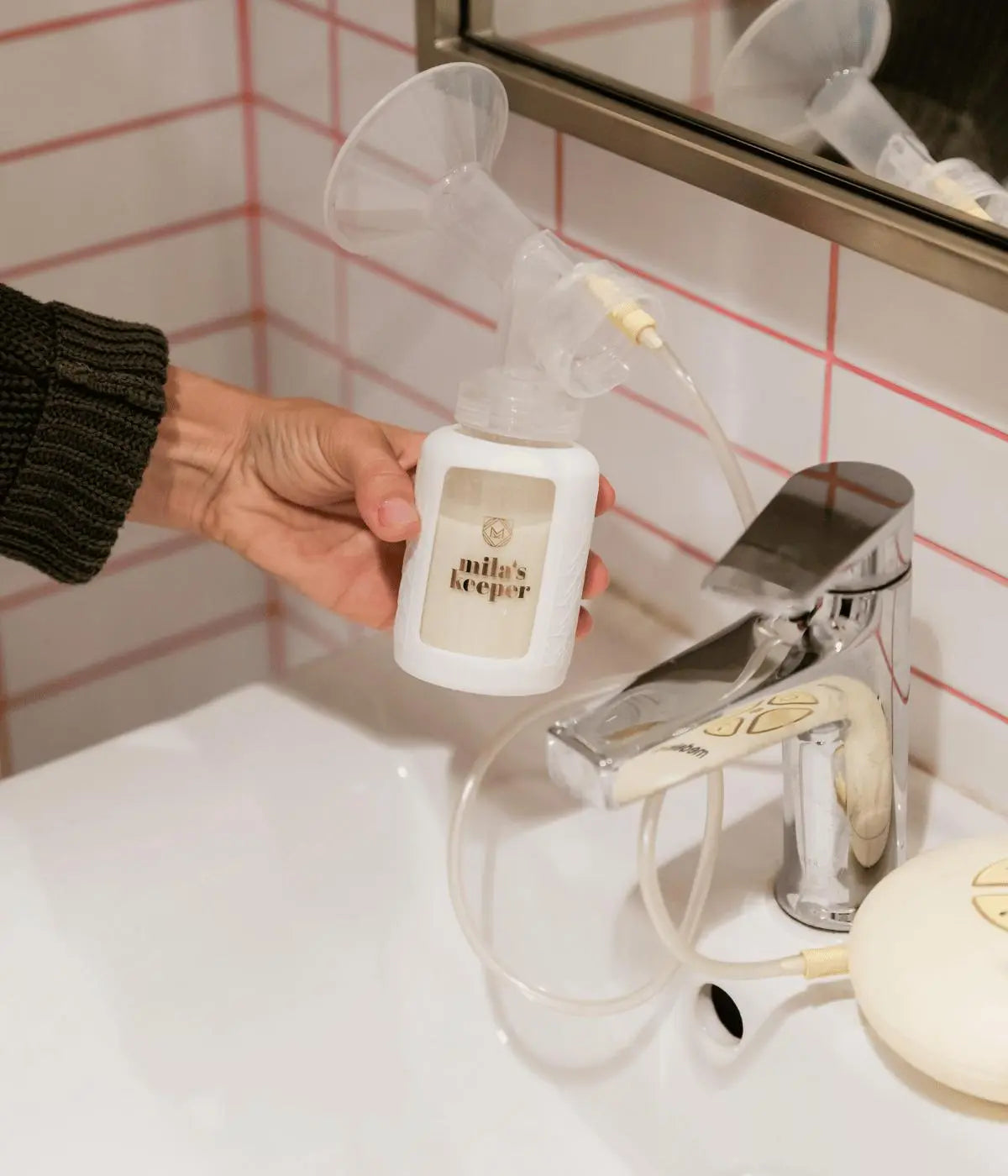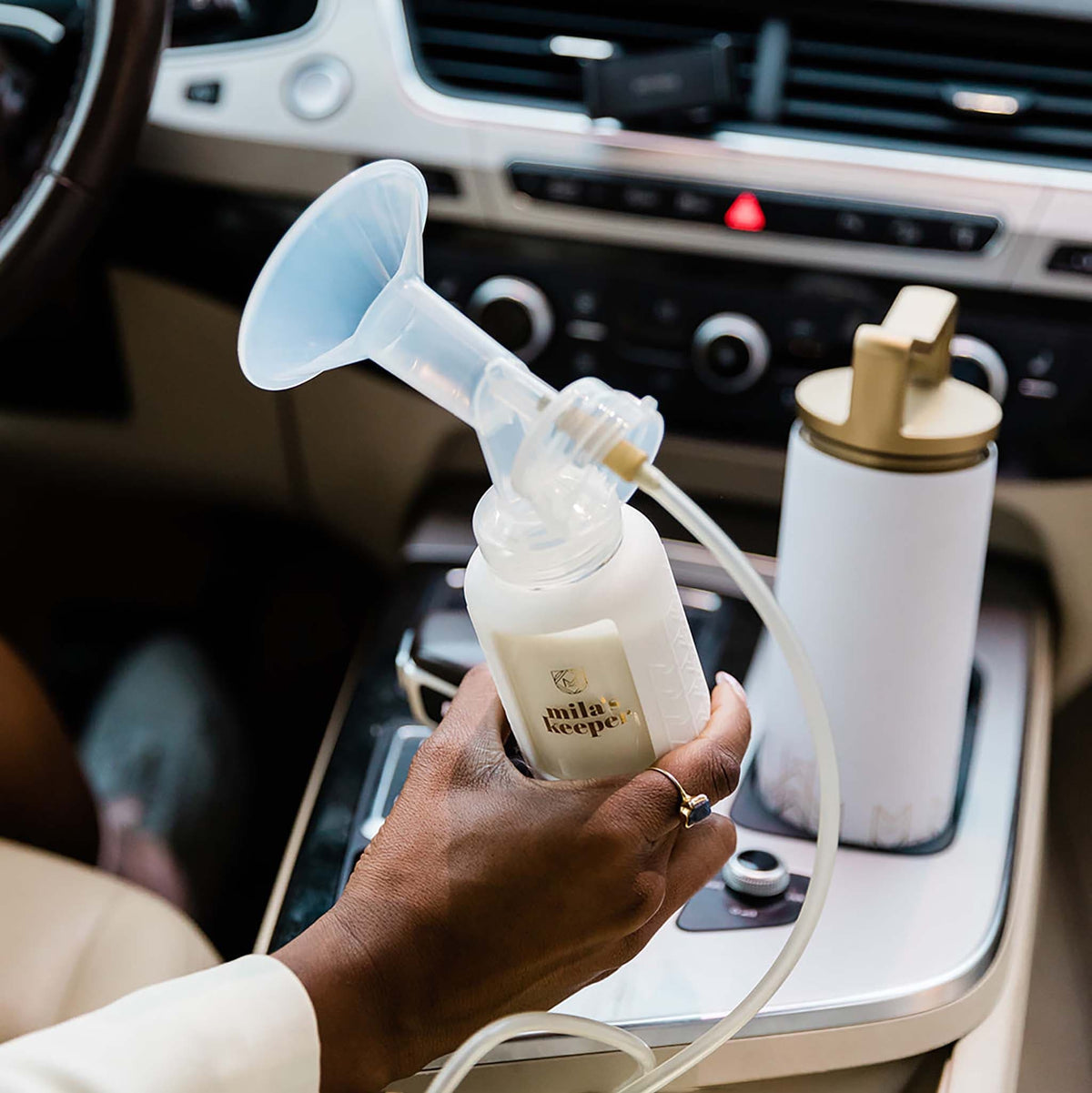The work-life balance is often discussed by working parents. It’s a magical equation that everyone’s trying to solve through endless trial and error and without much success. A new report shows that 66 percent of working parents have parental burnout. With parents making up 40 percent of the workforce, that’s a big chunk of people.
Living in a constant state of exhaustion and pressure is unsustainable, and changes need to be made for a more stable existence. So today we’re getting into what working parents really need from workplaces in order to achieve the much sought-after work-life balance.
Top 10 things employees want from their employers:
1. Paid family leave
One of the most impactful policies for working parents is a paid family leave policy. Paid family leave policies provide financial support to working parents who need to take time off from work to care for a new child or family member with a serious health condition. It helps ease the financial burden of taking time off work, which can be a significant barrier for many families.
The first few months of a child’s life are critical for bonding and attachment. New parents want to be able to spend time with their new addition without having to worry about the financial impact of taking time off work. Being able to bond with a new baby can lead to improved health, cognitive development, and emotional well-being for children.
For women who give birth, their bodies need time to recover from the experience, and having paid time off from work enables them to do that.
Paid family leave can also help reduce gender inequality in the workplace. Women are more likely than men to take time off work to care for a child or family member, which can have long-term consequences for their careers, including reduced earnings and career advancement opportunities. Paid family leave can help to level the playing field by providing financial support to all parents who need to take time off work, regardless of gender.
It won’t come as a surprise to anyone living in the US that we rank dead last among 41 high-income countries in terms of paid parental leave policies. While UNICEF recommends six months of paid paternity leave, only about 23 percent of workers in the US have access to any paid maternity leave at all. With about 82 percent of Americans supporting access to paid paternity leave, this is arguably one thing that most parents feel they deserve from their employers.

2. Remote/hybrid work options
A lot of changes came about as a result of the Covid pandemic. One of those changes that have been widely embraced by employees is remote/hybrid work options.
The emergence of remote and hybrid work options has brought about a significant change in the way parents approach their work and family responsibilities. Working parents face a unique set of challenges as they try to balance their professional and personal lives. Remote and hybrid work options have helped alleviate some of these challenges by providing more flexibility and control over their schedules, as well as reducing commuting time and costs.
Remote and hybrid work options offer working parents the flexibility to manage their work and family responsibilities simultaneously. With the ability to work from home or on a flexible schedule, parents can attend to their children’s needs, such as school drop-offs and pickups, doctor’s appointments, and other family obligations without having to sacrifice their work hours. Not to mention the ability to stay in leisurewear all day.
Remote and hybrid work options also eliminate or reduce the need for commuting. This is particularly beneficial for working parents who often have to juggle the responsibilities of getting their children to school or daycare before heading to work. By working from home, parents can avoid the stress and time constraints of rush hour traffic and can use this time to spend with their family or focus on work tasks, or whatever else they want.
Even bigger though, remote and hybrid work options can also reduce childcare costs. With the ability to work from home, parents can save money on childcare services, which can add up to significant savings over time.
Remote and hybrid work options also offer a sense of empowerment to working parents. By providing the ability to manage their work and family responsibilities more effectively, parents can feel more in control of their lives and can be more productive and engaged in their work. This increased sense of autonomy can boost their overall job satisfaction and contribute to a better work-life balance.
3. Childcare support
Employee-provided childcare support is a workplace benefit that offers working parents access to childcare services, either on-site or through a third-party provider, to help them balance their work and family responsibilities.
Such support can take many forms, including childcare subsidies, on-site daycare facilities, flexible work schedules, and family-friendly policies. The provision of childcare support can have a significant positive impact on working parents.
With 51 percent of Americans living in a childcare desert, finding reliable and affordable childcare can be a significant challenge for many working parents and a top reason for parents leaving the workforce.
By providing childcare support, employers can alleviate some of the stress associated with balancing work and family responsibilities. With access to on-site or third-party childcare, parents can have peace of mind, knowing that their children are being cared for in a safe and nurturing environment.
Not only does employee-provided childcare support benefit employees, but it can also improve employee retention and recruitment. Working parents are more likely to stay with an employer that offers childcare support, which can help reduce turnover and save employers the time and cost associated with hiring and training new employees. A win-win.

4. Paid sick days and personal days
Paid sick and personal days are something that not only working parents, but every working person deserves from their employers.
However, paid sick days are particularly important for working parents because they allow them to take time off from work to care for themselves or their children when they’re sick, without sacrificing their income or job security. This is especially important for parents with young children, who seem to always be catching something!
Paid sick days can also prevent the spread of illness in the workplace, as employees who are sick are more likely to stay home when they know they won’t lose pay for doing so.
In addition to paid sick days, personal days can also be valuable for working parents. Personal days can be used for a variety of reasons, including attending appointments, taking care of family members, or simply taking a break from work to recharge.
These days off can help reduce stress and burnout, which can have a positive impact on both work and family life.
5. Health care packages
Without universal health coverage in the US, many workers consider employer health care packages to be a deciding factor in choosing their jobs and a key factor in deciding to stay at their current job. About 50 percent of US workers have medical care through their employers with lower-wage workers less likely to have medical benefits than other workers.
Having access to a comprehensive employee healthcare package can greatly benefit working parents. Not only does it provide peace of mind knowing that their family’s health needs are being taken care of, but it can also ease financial burdens and provide additional support and resources.
With the rising costs of healthcare, having access to an employee healthcare package can be a huge financial relief for working parents. It can help to reduce out-of-pocket medical visits, prescriptions, and other health-related expenses. Employee health care packages typically include coverage for preventative care such as routine check-ups, screenings, and immunizations, helping to catch potential health issues early on and prevent more serious health problems from developing.
Many employee healthcare packages include maternity and parental benefits, like coverage for prenatal care, childbirth, and postpartum care. For working parents who are planning to start or expand their family, this can be greatly beneficial.

6. Fair pay and equal opportunities
Both fair pay and equal opportunities are critical for supporting working parents and creating a family-friendly workplace.
A “motherhood penalty” has long been talked about- the term describing the discrimination that working mothers face based on biased, stereotypical views of mothers.
Fair pay and equal opportunities are essential for working parents to achieve a healthy work-life balance and provide for their families. Employees should be compensated fairly for their work, regardless of their gender, race, or any other personal characteristics. All employees should also have access to the same career advancement opportunities and be evaluated based on their skills and qualifications, rather than personal characteristics.
7. Workplace lactation support
Giving moms time and space to pump at work is crucial because it enables them to continue to breastfeed their infants, which as we know, has numerous health benefits for both mama and baby.
With the World Health Organization and UNICEF recommending that babies are exclusively breastfed for the first six months of life, and continue to breastfeed until two years of age, mamas will need workplace accommodations in order to comfortably pump breast milk in order to meet these goals.
By providing designated lactation rooms and flexible work schedules, employers can ensure that working moms have the time and space they need to pump breast milk and maintain their milk supply while they’re away from their babies. (For spaces without refrigeration, our cooler for breast milk will keep your supply perfectly cool until you can get it to the fridge or freezer.)
The passage of the PUMP Act in December 2022 ensures that there will be basic accommodations for most breastfeeding employees across the US, with some state laws providing even greater protections and accommodations. However, there are still some women in the workforce that won't have access to lactation support. Some small businesses with under 50 employees can be exempt from providing lactation spaces due to the financial hardship it may cause, leaving many women without the support or protection they deserve.
Not only are there health benefits for both mamas and babies in supporting breastfeeding, but it can also improve job satisfaction and retention for working parents. When employers prioritize the needs of working parents, they demonstrate that they value their employees and are committed to supporting their work-life balance. This, in turn, can lead to increased job satisfaction among working parents.
Lactation support can also help to reduce the stigma surrounding breastfeeding in the workplace. By providing designated lactation rooms and promoting a culture of support for breastfeeding parents, employers can help to normalize breastfeeding in the workplace and create a more inclusive and supportive work environment for all employees.
8. Flexible work hours
Flexible work hours allow working parents to better manage their time between work and family responsibilities. They can schedule their work hours around their children’s schedules, and attend school events, doctor’s appointments, and other family commitments without having to take time off work.
Flexible work hours can mean more productive workers too since they can schedule their work hours during times when they are most productive, resulting in better job performance and increased job satisfaction.
Employees are generally happier and healthier when they have a more flexible work schedule.

9. Mental Health Support
With mental health being just as important as physical health, employees want support from their workplace in maintaining good mental wellness.
Employee Assistance Programs (EAPs) are often offered by employers to provide confidential counseling and support services to employees and their family members. EAPs typically provide access to mental health professionals who can offer advice, guidance, and counseling to help working parents manage their mental health.
Employers can provide employees with paid time off for mental health reasons, including for working parents who may need a day off to take care of their mental health or attend a mental health appointment.
10. Parenting Resources
Employers can offer parenting resources and support groups for working parents, such as parenting workshops, webinars, or online communities. These resources can provide working parents with tips and advice on managing the challenges of parenting while working.
Keep Reading related blog: 13 Ways to Support Breastfeeding Moms and Parents
--
A female-designed and female-run company, Mila's Keeper is on a mission to empower women to thrive during their breastfeeding journey by offering reusable, eco-friendly breast milk storage solutions for their day-to-day needs. Get the latest tips and info on Mila's Keeper products by following us on Facebook, Twitter, Instagram, Pinterest, and LinkedIn.























